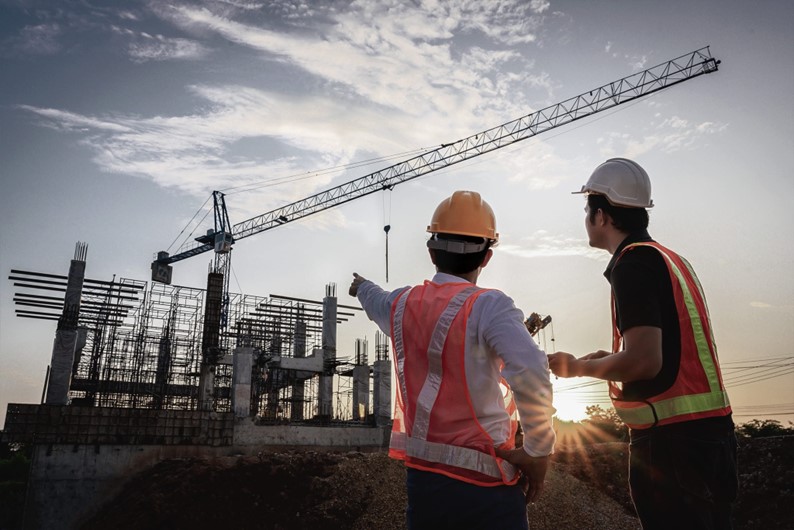
6/20/2024, 2:14:34 AM
How to Avoid Fraudulent House Developers: Essential Tips for Savvy Home Buyers
Buying a home is one of the most significant investments you'll make in your lifetime. However, the dream of homeownership can quickly turn into a nightmare if you fall prey to a fraudulent house developer. Protecting yourself from scams and ensuring a smooth buying process requires diligence, research, and a proactive approach. Here are essential tips to help you avoid fraudulent house developers and make informed decisions.
1. Research the Developer

Company Background
Start by investigating the developer’s history. How long have they been in business? What are their completed projects? A well-established developer with a solid track record is less likely to be involved in fraudulent activities.
Reviews and Testimonials
Look for online reviews and testimonials from previous buyers. Websites like Yelp, Google Reviews, and real estate forums can provide valuable insights into the experiences of other customers. Pay attention to both positive and negative reviews to get a balanced perspective.
Professional Associations
Check if the developer is a member of reputable industry associations, such as the National Association of Home Builders (NAHB) or similar organizations in your country. Membership in these associations often indicates a commitment to industry standards and ethical practices.
2. Visit Past Projects

Inspect Completed Homes
Visiting other projects completed by the developer is crucial. Assess the quality of construction, materials used, and overall finish. This firsthand experience can give you a good idea of what to expect in your future home.
Talk to Homeowners
Speak with residents of previous developments to understand their experience with the developer. Ask about the quality of construction, after-sales service, and any issues they faced. Honest feedback from current homeowners can be incredibly revealing.
3. Verify Legal Documents

Title Deeds
Ensure the developer has clear legal title to the land. Verify land ownership documents with local land registry offices to avoid legal complications later.
Approvals and Permits
Confirm that the developer has all necessary approvals and permits from local authorities for construction and sale. This includes zoning permits, environmental clearances, and building permits. Lack of proper documentation is a significant red flag.
Sales Agreement
Have a lawyer review the sales agreement to ensure it includes all promised amenities and is free from unfair clauses. A thorough legal review can save you from future disputes and financial losses.
4. Financial Stability

Developer’s Financial Health
Investigate the financial stability of the developer. Check their credit rating, financial statements, and any news about financial difficulties. A financially stable developer is more likely to complete the project on time and with the promised quality.
Funding Sources
Understand how the project is being funded. Projects financed through reputable banks or financial institutions are usually more secure. Banks conduct their own due diligence before approving loans, adding an extra layer of scrutiny.
5. Construction Quality and Progress

Construction Standards
Check the construction standards and materials being used. If possible, hire an independent inspector to assess the quality of construction. Poor quality materials and workmanship can lead to significant problems down the road.
Site Visits
Regularly visit the construction site to monitor progress and ensure the project is on track. Frequent site visits can help you catch potential issues early and ensure the developer is adhering to the promised schedule.
6. Legal Protection and Escrow

Escrow Accounts
Use escrow accounts for payments. This ensures that your money is only released to the developer upon meeting certain milestones or completion of the project. Escrow accounts protect your investment and provide leverage if issues arise.
Legal Recourse
Ensure that your contract includes clauses for legal recourse in case of delays, non-completion, or substandard construction. Legal protection is crucial for safeguarding your rights as a buyer.
7. Background Checks

Litigation History
Check if the developer has been involved in any legal disputes, especially those related to real estate or consumer complaints. A history of litigation can be a red flag indicating potential problems.
Regulatory Compliance
Verify that the developer complies with local real estate regulations and has no history of violations. Regulatory compliance is a key indicator of a developer’s reliability and professionalism.
8. Home Warranty and After-Sales Service

Warranty
Ensure the developer offers a comprehensive home warranty covering structural defects, electrical and plumbing systems, and other major components. A solid warranty provides peace of mind and financial protection.
After-Sales Service
Check the developer’s reputation for after-sales service and support. Reliable after-sales service is crucial for addressing any issues that arise after you move in.
9. Professional Advice

Hire Experts
Engage a real estate agent, lawyer, and possibly an independent inspector to help you navigate the process. Professional advice can help you avoid pitfalls and make informed decisions.
Get Recommendations
Seek recommendations from trusted sources like friends, family, or professional advisors who have experience in real estate. Personal recommendations can be invaluable in finding a trustworthy developer.
10. Payment Structure

Staggered Payments
Structure payments in phases tied to the completion of specific project milestones rather than paying large sums upfront. Staggered payments protect your investment and ensure the developer stays motivated to complete the project on time.
Down Payment Protection
Ensure that your down payment is protected and recoverable in case of project delays or cancellations. Down payment protection adds an extra layer of financial security.
Conclusion
By following these essential tips, you can significantly reduce the risk of falling victim to fraudulent house developers and ensure a safe and satisfactory home-buying experience. Taking the time to research, verify, and monitor every aspect of your home purchase will pay off in the long run, giving you peace of mind and confidence in your investment.